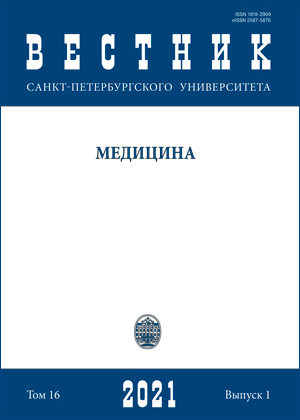Nutritional stereotypes of children with insulin-dependent diabetes mellitus
DOI:
https://doi.org/10.21638/spbu11.2021.101Abstract
In most cases, type 1 diabetes mellitus is an autoimmune disease characterized by the destruction of insulin-producing beta cells, which is the result of absolute insulin deficiency and, therefore, treatment is associated with the administration of insulin. The therapeutic treatment of type 1 diabetes includes the use of insulin for glycemic control, balanced nutrition and regular physical activity. Daily insulin requirements vary depending on age, diet, self-monitoring of blood glucose and daily routine. Obesity affects some patients with type 1 diabetes, which increases their insulin requirements and negatively affects their metabolic control. The type 1 diabetes diet is an essential part of the treatment program and helps to achieve glycemia targets and avoid insulin dose difficulties. Traditionally, for sick children and their parents, there are diet classes in the School of diabetes, but the equivalence in terms of diet and the actual nutrition of children is not sufficiently studied. Therefore, a combination of insulin therapy and an individual nutrition plan is necessary, which is the key to proper metabolic control. The usual nutritional guidelines for patients with type 1 diabetes should be the same as those for the general population.
Keywords:
School of diabetes, diabetes mellitus, insulin, bread units, nutrition, glycemia, physical growth, metabolic control, body mass index
Downloads
References
References
Downloads
Published
How to Cite
Issue
Section
License
Articles of "Vestnik of Saint Petersburg University. Medicine" are open access distributed under the terms of the License Agreement with Saint Petersburg State University, which permits to the authors unrestricted distribution and self-archiving free of charge.




